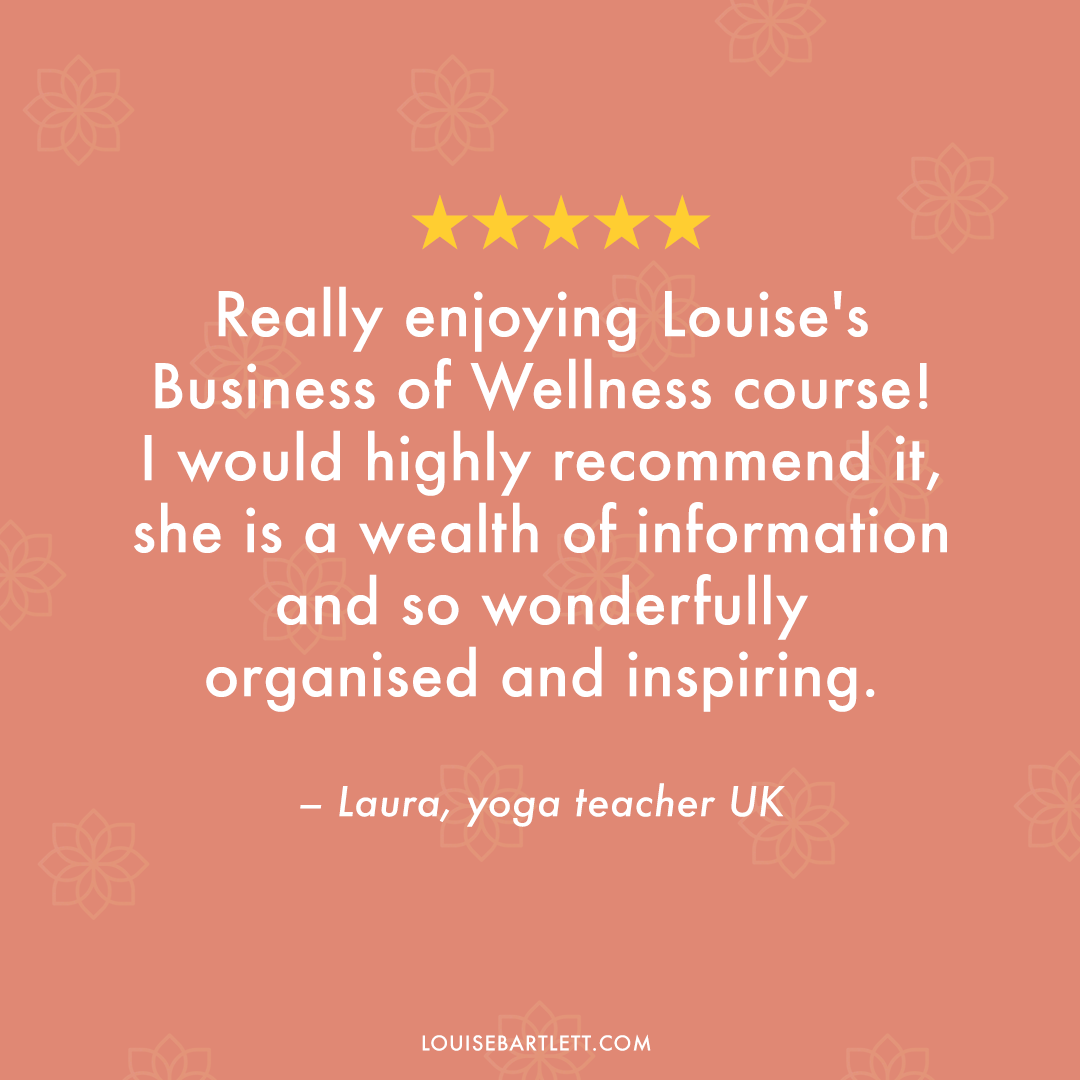5 Marketing Skills You Must Learn To Be Successful In Business
In today's competitive wellness market, it's not enough to simply offer a great product or service. You also need to know how to market yourself effectively and learn the skills needed to succeed. Here are five marketing skills that every wellness professional should master:
The Power of Storytelling
Demonstrating Authority
Your Messaging: Specificity, Simplicity, Tangibility
Shifting Perspectives
The Power of Testimonials
1. The Power of Storytelling
When it comes to relating to your audience, there’s no better way than sharing personal stories that resonate with your audiences experiences to capture their attention. They will lean in and listen to what you have to say, when they can hear themselves in your story.
Example: "I remember feeling overwhelmed and stressed as a new mom. I was struggling to balance my own needs with those of my baby. That's why I created my online yoga class for new moms. I wanted to offer a safe and supportive space for them to connect with other mothers and prioritize their self-care."
Using vivid imagery helps to paint a picture in the minds of your audience. Try using metaphors to make your point clear and easy to relate to.
Example: "Imagine your body as a temple. It needs nourishment, rest, and movement to function at its best. My meditation app provides the tools you need to cultivate a healthy and balanced lifestyle."
And finally, focus on the benefits. Highlighting how your product or service can solve your audience’s problems allows them to see themselves in your story.
Example: "My nutrition coaching program doesn't just help you lose weight; it helps you develop a sustainable, healthy relationship with food. You'll learn how to nourish your body, boost your energy, and improve your overall well-being."
2. Demonstrating Authority
There are many ways to demonstrate authority, but one often overlooked practise is by non-verbal communication – body language. Show your expertise through your body language and tone of voice by standing tall, maintaining eye contact and speaking with conviction. Use a confident and reassuring tone of voice and people will be hanging on your every word.
Another way to demonstrate your authority is by sharing your credentials. Highlight your years of experience in the field, any certifications that you have and what you specialise in or ways you have overcome what you’re now teaching others.
Example: "With over 10 years of experience as a certified yoga teacher, I've helped countless clients improve their flexibility, reduce stress, and find inner peace."
Finally, share success stories from your clients. When they have seen results from your teaching, shout from the rooftops. This is social proof that people are finding real results and a great way for people to see themselves in others.
Example: "One of my clients, Sarah, lost 20 pounds and improved her overall health after following my personalized nutrition plan. She's now feeling more confident and energetic than ever before."
3. Your Messaging: Specificity, Simplicity, Tangibility
As experts in our fields, we often forget that student don’t know all the terminology that we might use. Avoid using jargon. Instead use clear and simple language that your audience can understand. While it’s great to learn the Sanskrit names of yoga poses, for beginners, it can be daunting and confusing. If you want to use the Sanskrit names, use the English variation as well, to keep it accessible and inclusive to everybody.
Make sure your messaging focuses on the benefits, emphasising the outcomes your clients can expect.
Example: "My mindfulness meditation app will help you reduce stress, improve your sleep, and increase your focus."
Finally, when promoting your services, creating a sense of urgency can help encourage students to take immediate action when limited-time offers, deadlines, or discounts are there.
Example: "Sign up for my yoga retreat before [date] and receive a 10% discount."
4. Shifting Perspectives
Always anticipate common concerns and objections and make sure you’ve provide solutions to each. The 5 most common objections to purchase a product or service comes in the form of: time, money, uncertainty, need, and alternatives. Make sure that when you’re speaking about your offer, you’ve addressed these points.
Example: "I know you're worried about the time commitment, but my online fitness classes are only 30 minutes long and can be done from the comfort of your own home."
Try reframing these challenges by turning potential negatives into positives.
Example: "Instead of seeing your busy schedule as a limitation, think of it as an opportunity to prioritise self-care. My personalised meal plans will help you make healthy choices even when you're short on time."
Finally, empower your audience to make a decision that’s a no-brainer for them to move forward.
Example: Instead of saying “Buy my course”, try "Are you ready to take your wellness journey to the next level? Choose from my one-on-one coaching sessions, group classes, or online programs."
5. The Power of Testimonials
If you’ve known me for ANY length of time, you’ll know that I’m always talking about the power of testimonials and how you should be collecting them all the time. Ask happy clients to share their experiences. Make this a monthly activity. The more testimonials you collect, the more likely it is for someone to see themselves in the feedback and purchase your offer.
Example: Send a follow-up email to your clients after they've completed a program or service and ask them to leave a testimonial. (Make sure to ask them how to improve your course, too! This will help you make the course even better for others.)
As mentioned in point 2 above, you can use testimonials to create case studies or client wins or highlight them on your website and social media. The more you have, the better your chances that people will buy from you.
Where to use testimonials in your marketing: Incorporate them into your sales pitches and email campaigns and social media posts to build trust and credibility with potential clients. If you can, get a photo and use a name, so that others can see it’s from a real person, or someone they already know.
By mastering these five skills, you can effectively market your wellness business and attract more clients. If you’re using some or all of them already, then great, you are well on your way to business success. But, maybe there’s one or two that could use your attention. Try sending out an email to your list today and ask for a glowing review from your students.
Here’s to your business success!






